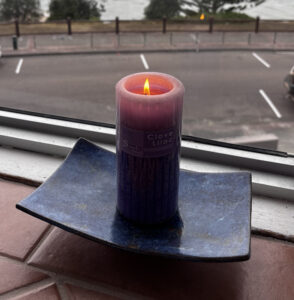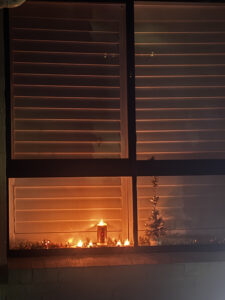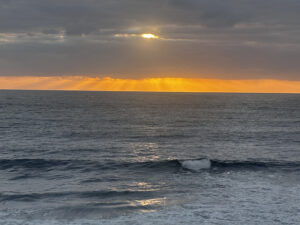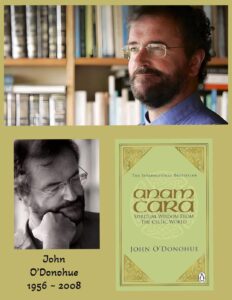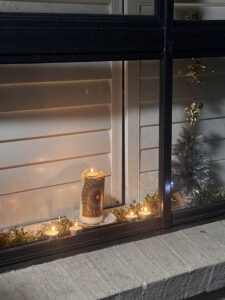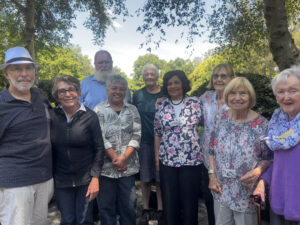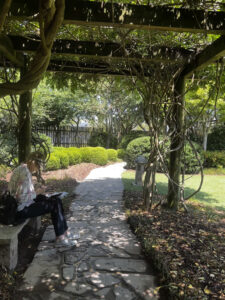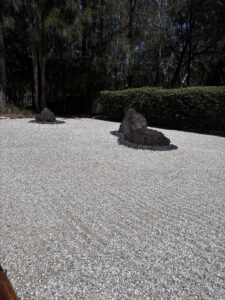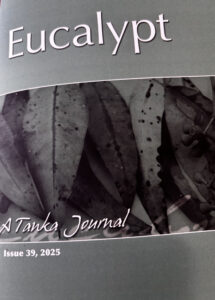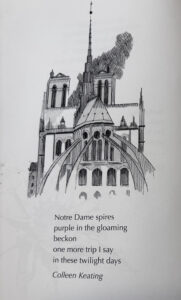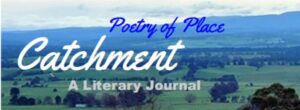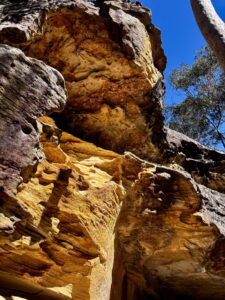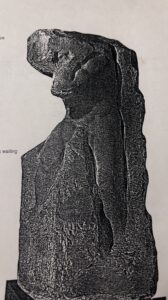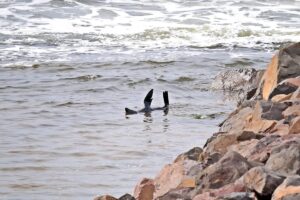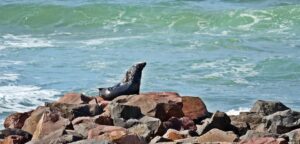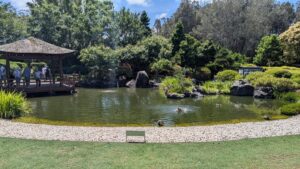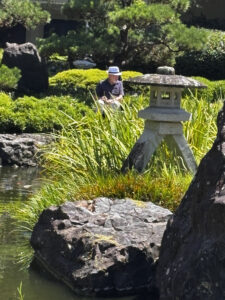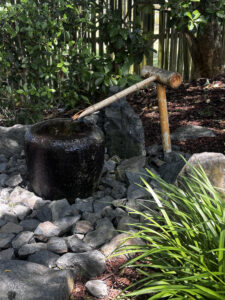_________________________________________
ROS SPENCER POETRY PRIZE 2025 JUDGE’S REPORT
Thanks to WAPI for the invitation to judge this year’s Ros Spencer Prize – it is an honour and privilege to be asked to take on this role. 2025 saw more than 570 entries which is a testament to the strength of poetry writing in Australia and also to the prestige of this competition. The topics of the entries ranged from childhood memories, nature, war, philosophy, relationship issues and writing itself. The majority of poems were written in free form, but herein lies a danger – free form does not mean free of form. Rather, it requires the poet to create a new form or structure, both to allow the reader an invitation to read as well as to require judicious editing. A further issue with some of the poems is when dealing with topics such as the wars in Gaza and Ukraine, the writing needs to remain real and proximous, rather than a re-telling of footage seen on TV or social media. And the final issue with some entries is that poetry is not ‘cut-up’ prose. Rather, it is a more subtle use of language where imagery, rhythm and line/stanza breaks play as much importance as plot. Those poems that made up my final 20 and then 6 evoked a palpable sense of voice which lifted from page into ear.
Choosing the winning poems from such a vast field was a very difficult task resulting in numerous changes of mind as to the order.
Thanks to all of the poets who submitted work and congratulations to the winning writers. And many thanks to the Spencer family for their continued support of Australian poetry.
Prize-Winning Poems:
First Prize, “On–Blue Horses” by Rosa Christian
A poem that focusses upon the reading of another is a brave choice of subject matter, but in this case works beautifully. The writing is engaging and evocative, with the consistent use of questions a key part. Diction and imagery are handled extremely well, such as in these three lines: “Did she scribble her thoughts/ in an unconscious, eclamptic fit/ intellectual muscles twitching and spasming”, and the occasional breaking of the ‘fourth wall’ such as “(I imagine her using a fountain pen/ that elegant maker of words)”. The closure is succinct but continues the flow of ponder. An insightful and wonderful tribute to the writing of Mary Oliver and worthy winner.
Second Prize, Last Way (Monument to Fallen Jewish People In Minsk, Belarus) by Collen Keating
One of the few sestinas entered and the form works extremely well to invite focus on the subject matter. The end-words chosen create enough opportunities for wrap-around and finishing lines, and the diction is very evocative. Lines such as “moving//like a tethered camel train” and “numbingly real and its black/sky zithers with light” create a rich literary landscape, The fraught subject matter is deftly handled resulting in a succinct yet very powerful poem of considerable emotional depth.
Highly Commended Poem:
1 “A Rime Winter’s Eve” by John Beeson
Such brilliant diction usage in this poem, the glossary footnote reading like a poem itself. Rare to see a poem employing strict rhyme and stanza strictures, but these work beautifully to enhance the ‘olde world’ feeling. A true ballad which could quite easily become the text for a folk song. The flow of the unfolding tale is beguiling with the closure deftly handled. A real classic of storytelling woven into poetry.
Commended Poems:
1.“things that are alived” by Kim Kenyon
A poem with very strong diction and turns of phrase, such as an “indignation of crickets”, “fits into her limbs” and “Skin our noses/ on the mumble of mushrooms, gloaming of boulders, crackle of wing/ across light.” The form used in lines cascading inwards very much adds to the flow. An emotionally engaging discourse as to time spent between a mother and daughter.
2. “How to Become a Ghost” by David Terelinck
This poem uses a very proximous voice which reads in the manner of an instruction booklet. The stanza breaks and single lines are deployed in an insightful way, enhancing both flow and lines of importance. Use of diction is always inventive and line such as “light is crucial to death//the way it anoints the skull/potent momento mori/ to the ephemerality of//the world” give rise to a mantra-like feel. The final lines “just lead white skies/ silverpoint tracers/ and the pearlescent tears//of those who linger” are both profound and poignant.
Kevin Gillam
Back to Top
_________________________________________
First Prize
On-Blue Horses
On re-reading Mary Oliver (American poet: died 2019)
this one throttled my heart until I nearly fainted.
I wonder … did she labour painfully
through the birth of her words
as I do?
Did she scribble her thoughts
in an unconscious, eclamptic fit
intellectual muscles twitching and spasming
as each contraction pushed
the infant poem into the glaring light
of public scrutiny.
Or, was her labour of another kind?
Did she mine in the heat of the moment
breathing hard, a Lamaze technique
of digging deep, searching for
lexiconic progeny in the placental
kimberlite pipes of the subconscious
to wrest from contemplative adits
rare gems of understanding
polishing and editing them
into shining diamonds
before presenting them to the world?
Did she grunt and gasp
as she delved for nuggets in
the hard ground of experience?
Did she sift gold from garbage
wash away the vernix
of the everyday dirt and grime
the worries, preoccupations, expectations?
Smelt and shape it
into its own inspired creation
that will last untarnished forever?
Or, did her issue
in an amniotic stream sublime
slide with ease from the uterine aether
pouring through Stebbin’s Gultch
‘…dashing… against the rocks, or pausing’
pass through her open heart
through her beautiful mind
out the pudendum
of her fountain pen?
(I imagine her using a fountain pen
that elegant maker of words)
Did her infant poem arrive fully formed?
limbs, digits, syntax in tact
spilling into the world
emotion, nuance, subtlety
to grow and proliferate then
sow its own inspirational seed
in fertile endometrial mind-fields
awaiting the ideal moment
to explode
into words of life?
‘…one of those gorgeous things’
a poem doing it perfectly.
Who knew that Blue Horses could say so much without speaking.
Rosa Christian
Back to Top
____________________________
Second Prize
Last Way
(Monument to Fallen Jewish People in Minsk, Belarus)
They grapple for footholds down the side of a pit
men, women, children, all huddled, un-named
in this bronze sculpture, patinaed ash-black;
emaciated, yet holding heads high, moving
like a tethered camel train, bare feet on the ground.
The last figure holds a one-string violin and plays
the thrum of a beat, a heart twang – plays
a-pace for this staggering last way into the pit.
The first, arms crossed, eyes beyond the gaping ground
defiant in his death walk with this group un-named.
Each a shadow, twisted, each human silhouette moving
flesh pressed into flesh, last human touch. The black
wings of death, numbingly real and its black
sky zithers with light, as the secret note plays.
No fight, no anger but a procession, moving
closer to their end at the nadir of the pit.
Here sins of humanity rage un-named.
These twenty-seven will die on bone-scattered ground
a token for rivers of humanity caught on any ground.
One face tucked away into the body of another, black
fears are shunned as arms wrap little ones un-named.
The violin note quivers, like a breeze at dawn plays.
They falter on the eighteen stone steps to the pit.
Today each viewing, each angle of sight a moving
reminder of the slide into evil. This is the point moving
the artist, who created it for this blooded ground
where in darkness of ignorance, humans are killed pit
–iful and alone. The sight that stands out in this black
mass is the slender intimacy of their necks. This plays
with thoughts of love, tender kisses, and being named.
Even in death a grace is found. Here it is named
in figures, taller than life, protecting each other, moving
with postures of terror, to a psalm the violinist plays.
Most look towards the sky, a few to the ground.
A wasted figure is carried, and a shadow, black
as a bird in flight, flickers. The canticle for a death-pit
– a one-string lament the violinist plays. This is holy ground.
Even un-named, the scene is moving.
Dark fades, as black at dawn, yielding light to the pit.
Colleen Keating
Thank you to Dr.Stephanie Dowrick for her New Year initiative of the poetry and photography. Hafez Shirazi (1325–1390) was a 14th century Persian poet. Persian .
